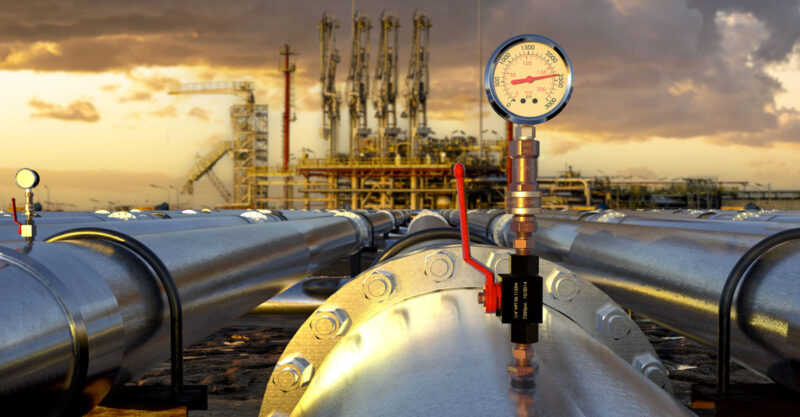By Julia Conley
Climate justice, consumer rights and conservation groups were among more than 140 organizations that wrote to insurance agencies on Thursday to demand they stop underwriting liquefied natural gas (LNG) export terminals like nearly two dozen that have been proposed on the U.S. Gulf Coast, with frontline communities joining the call on the one-year anniversary of an explosion at a terminal on Quintana Island, Texas.
A year after the blast at a terminal owned by Freeport LNG which sent toxic pollution into local communities and injured several people at a nearby beach, national groups including Public Citizen and Oil Change International joined local campaigners in signing the letter, warning that continued support for liquefied natural gas facilities poses “reputational risks” to insurers while contributing to the climate emergency.
“This is a call for insurers to stop providing coverage to explosive methane gas export terminals,” the letter reads.
“We urge insurers to meet with communities impacted by the liquefied natural gas industry as soon as possible… If there is no response, we will move forward with a public campaign. We will address these concerns with the international media, the supporters of nonprofits, and policymakers, and we will organize protests at your offices.”
Melanie Oldham of Better Brazoria: Clean Air and Clean Water, a grassroots group in coastal Brazoria County, Texas, said Thursday that she and her neighbors “live in fear of further explosions, air pollution, and the impacts of these facilities on our health.”
“I live in Texas, three miles away from a major gas export, Freeport LNG. There was an explosion and fire at Freeport LNG a year ago today — the resulting fire was an explosion that was 450 feet high. This explosion rocked our homes, spewed toxic chemicals, and sounded like thunder,” said Oldham. “Insurers, drop methane gas — these projects are not worth the risks.”
The letter notes that the U.S. is the largest producer of methane gas in the world and that the scale of the country’s LNG expansion “is immense,” with dozens of LNG pipelines, storage facilities and import/export terminals being built across the country — particularly along the Gulf Coast.
That expansion is taking place even as the climate impacts of the extraction of fossil fuels including LNG — fracked gas which is cooled and liquefied — become increasingly apparent.
Parts of the Northeast this week have been cloaked in wildfire smoke that’s drifted south from Canada, where experts say planetary heating created conditions that have made recent forest fires more severe.
The letter points to other climate impacts driven by the continued expansion of LNG and other fossil fuels, including storm surges, flooding and sea level rise, which has already affected the site of one proposed LNG terminal in Plaquemines Parish, Louisiana.
“After Hurricane Ida [in 2021], Plaquemines Parish was underwater for three weeks,” the groups wrote.
“Plaquemines Parish is the site of the proposed methane gas export terminal, Venture Global Plaquemines LNG. Plaquemines Parish is one of many localities in the coastal U.S. south facing major sea level rise and land loss related to rising global temperatures.”
By underwriting and investing in LNG projects, insurers are also contributing to “extensive property loss, erosion of beaches, damage to coastal habitats, and [the undermining of] public infrastructure such as roads, railroads, bridges, buildings, and pipelines,” they added.
“Floodwaters can also spread hazardous wastes and toxic chemicals released from fossil fuel and chemical plants. Storm surges dislodge storage tanks, cause equipment malfunctions leading to spills, and cause chemical fires.”
The groups noted that numerous fracked gas pipelines and LNG facilities are close to sacred Indigenous sites and could violate the United Nations Declaration on the Rights of Indigenous Peoples.
Texas LNG, for example, “has already violated [the Carrizo Comecrudo tribe’s] human rights by beginning construction” on an LNG project proposed at the archeological site Garcia Pasture without consulting the tribe.
“Many insurers underwrite projects that ignore [the right to free, prior, and informed consent], greenlighting toxic projects without the consent of impacted communities — an issue a number of shareholders have raised this year,” said the groups.
The letter also notes that insurance companies are already making business decisions related to the effects that fossil fuel projects have on communities — but working people are suffering the consequences instead of LNG producers.
“Insurance companies are already withdrawing from communities and increasing the price of insurance coverage because of climate change,” wrote the groups, referring to State Farm’s recent announcement that it will no longer write new property insurance policies in California due to homeowners’ risk of being affected by wildfires.
“From California’s wildfires to hurricane risk in the Gulf, insurers create some of the most comprehensive risk modeling about climate change,” reads the letter. “Insurers are choosing to withdraw from communities and cancel homeowners’ policies, while profiting from deals that expand oil and gas infrastructure. These withdrawals result in price hikes that communities cannot afford.”
Justin Guay, director of global climate strategy at The Sunrise Project, tweeted that campaigners aim “to make fossil fuels, not homes, uninsurable.”
Insurers are leaving people’s homes uninsurable as wildfires and climate impacts mount
But they have no problem insuring new LNG export terminals that pour fuel on those fires
All eyes on a new campaign to make fossil fuels, not homes, uninsurable https://t.co/gjmgnO3WBc
— Justin Guay (@Guay_JG) June 6, 2023
“It’s time for insurance companies to stop insuring LNG terminals, which are not only a major contributor to climate change, but also pose a significant risk to surrounding communities,” said Roishetta Ozane, fossil fuel finance campaigner with Texas Campaign for the Environment.
“It’s time for insurance companies to prioritize the safety and wellbeing of communities over profits and take a stand against these dangerous facilities.”
Originally published by Common Dreams.
Julia Conley is a staff writer for Common Dreams.








